Docente del programa de Ciencias del Deporte de la U.D.C.A; Fisioterapeuta Especialista en Ejercicio Físico para la salud, Magister en Fisioterapia del Deporte y la Actividad Física, Magister en Salud y Seguridad en el Trabajo, estudiante de Doctorado en Educación Deportiva y Ciencias del Deporte, con experiencia en docencia universitaria, investigación en deporte formativo – actividad física y salud, experiencia como fisioterapeuta deportiva en juegos competitivos a nivel deportivo nacional; Obtuvo en el 2013 un beca de Investigación Actividad Física, Recreación y Deporte en el Proyecto de Jornada Escolar 40 horas ,Secretaria de Cultura Distrital Recreación y Deporte. Miembro del grupo de investigación Ciencias del Deporte y la Actividad Física.
Sus áreas de formación son: deporte formativo, evaluación condición física, evaluación composición corporal, actividad física y salud, prevención en lesiones deportivas. Sus líneas de actuación son: Ciencias del Deporte, Salud Ocupacional y Políticas de Salud y Servicios; se desempeña en las líneas de investigación en Actividad Física y Salud.

